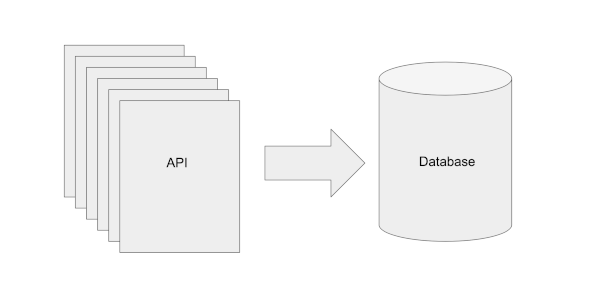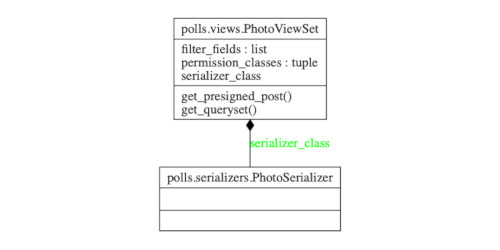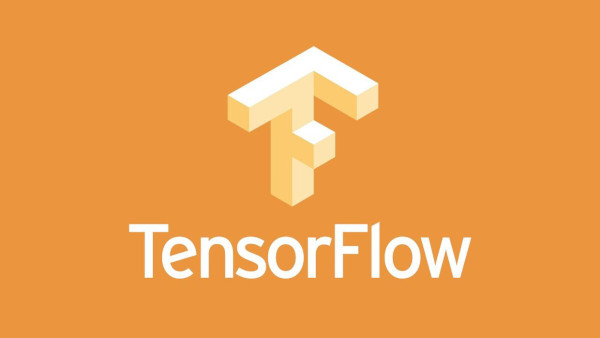 The pandemic has been damaging for a number of industries and has hit small business owners especially hard. The best way forward is to adapt to the new reality, which involves finding ways to grow your online presence, or if you have a physical business, enacting safety measures to keep your staff and customers healthy.
The pandemic has been damaging for a number of industries and has hit small business owners especially hard. The best way forward is to adapt to the new reality, which involves finding ways to grow your online presence, or if you have a physical business, enacting safety measures to keep your staff and customers healthy.
 I recently had a client that wanted a primer on the quickbooks api for oauth.
Below find a short video tutorial of how to copy, configure and run a django
api that uses login with quickbooks. I also go over the oauth flow between
intuits servers and the django api endpoints.
I recently had a client that wanted a primer on the quickbooks api for oauth.
Below find a short video tutorial of how to copy, configure and run a django
api that uses login with quickbooks. I also go over the oauth flow between
intuits servers and the django api endpoints.
 Recently I struggled with a Django form. The requirement was to specify a placeholder
html data attribute. This task is very standard but the search terms involved made it
tricky to find a solution online. I provide it here to help others.
Recently I struggled with a Django form. The requirement was to specify a placeholder
html data attribute. This task is very standard but the search terms involved made it
tricky to find a solution online. I provide it here to help others.
 I recently worked on a legacy React Native app that had issues running on
Android. Like many software projects there is never enough time nor enough
engineers so the project was not tested for Android. When they finally got
around to running the app on Android it was too painful. I was asked to fix it.
I recently worked on a legacy React Native app that had issues running on
Android. Like many software projects there is never enough time nor enough
engineers so the project was not tested for Android. When they finally got
around to running the app on Android it was too painful. I was asked to fix it.
 Async tasks are an intermediate backend engineering problem. Most public facing
apis need to return an answer under 1 second for a good user experience. However
many real world tasks require more than 1 second to complete or need to be scheduled
to repeat. The solution is usually to create a task that can run asynchronously.
In Django one way to accomplish this is by writing a management command.
Async tasks are an intermediate backend engineering problem. Most public facing
apis need to return an answer under 1 second for a good user experience. However
many real world tasks require more than 1 second to complete or need to be scheduled
to repeat. The solution is usually to create a task that can run asynchronously.
In Django one way to accomplish this is by writing a management command.
 How do you manage your expo phone app’s configuration between testing and production?
Expo has a feature called release channels that allow you to distribute different
versions of your app. In this post I’ll go over my approach to configuration management
of a react native app using release channels.
How do you manage your expo phone app’s configuration between testing and production?
Expo has a feature called release channels that allow you to distribute different
versions of your app. In this post I’ll go over my approach to configuration management
of a react native app using release channels.
 Here’s a small tip on how to write some endpoints in Django Rest Framework. DRF
is a very powerful framework for building APIs. It provides the typical actions
(Create, Read, Update, Destroy) for your models. But what if
you want to change the default behavior?
Here’s a small tip on how to write some endpoints in Django Rest Framework. DRF
is a very powerful framework for building APIs. It provides the typical actions
(Create, Read, Update, Destroy) for your models. But what if
you want to change the default behavior?
 In early January I was reached out to by the nyc blockchain group asking if I could teach
whatever I know about Solidity. I said yes. The audience was undergrads completeing
coursework in project management and computer science. Not all of them knew what
bitcoin was so I covered a lot of ground in a short amount of time.
In early January I was reached out to by the nyc blockchain group asking if I could teach
whatever I know about Solidity. I said yes. The audience was undergrads completeing
coursework in project management and computer science. Not all of them knew what
bitcoin was so I covered a lot of ground in a short amount of time.
 There are lots of materials on how to train neural networks but not as many
showing how to deploy them to power real services. In this post I’ll share a
minimal example of how I train tensorflow models and deploy them on Sagemaker.
I’ll cover items that I found intimidating so hopefully they become less
intimidating to you.
There are lots of materials on how to train neural networks but not as many
showing how to deploy them to power real services. In this post I’ll share a
minimal example of how I train tensorflow models and deploy them on Sagemaker.
I’ll cover items that I found intimidating so hopefully they become less
intimidating to you.
 An app that’s tailored exclusively to English-speaking users won’t compete
in the overall market. You could make 10x the revenue you currently make by
adding global localization to your app. You limit your own chances of reaching a larger
customer base if you don’t localize your business for users who speak different
languages and live in different regions.
An app that’s tailored exclusively to English-speaking users won’t compete
in the overall market. You could make 10x the revenue you currently make by
adding global localization to your app. You limit your own chances of reaching a larger
customer base if you don’t localize your business for users who speak different
languages and live in different regions.
 The pandemic has been damaging for a number of industries and has hit small business owners especially hard. The best way forward is to adapt to the new reality, which involves finding ways to grow your online presence, or if you have a physical business, enacting safety measures to keep your staff and customers healthy.
The pandemic has been damaging for a number of industries and has hit small business owners especially hard. The best way forward is to adapt to the new reality, which involves finding ways to grow your online presence, or if you have a physical business, enacting safety measures to keep your staff and customers healthy. I recently had a client that wanted a primer on the quickbooks api for oauth.
Below find a short video tutorial of how to copy, configure and run a django
api that uses login with quickbooks. I also go over the oauth flow between
intuits servers and the django api endpoints.
I recently had a client that wanted a primer on the quickbooks api for oauth.
Below find a short video tutorial of how to copy, configure and run a django
api that uses login with quickbooks. I also go over the oauth flow between
intuits servers and the django api endpoints. Recently I struggled with a Django form. The requirement was to specify a placeholder
html data attribute. This task is very standard but the search terms involved made it
tricky to find a solution online. I provide it here to help others.
Recently I struggled with a Django form. The requirement was to specify a placeholder
html data attribute. This task is very standard but the search terms involved made it
tricky to find a solution online. I provide it here to help others. I recently worked on a legacy React Native app that had issues running on
Android. Like many software projects there is never enough time nor enough
engineers so the project was not tested for Android. When they finally got
around to running the app on Android it was too painful. I was asked to fix it.
I recently worked on a legacy React Native app that had issues running on
Android. Like many software projects there is never enough time nor enough
engineers so the project was not tested for Android. When they finally got
around to running the app on Android it was too painful. I was asked to fix it. Async tasks are an intermediate backend engineering problem. Most public facing
apis need to return an answer under 1 second for a good user experience. However
many real world tasks require more than 1 second to complete or need to be scheduled
to repeat. The solution is usually to create a task that can run asynchronously.
In Django one way to accomplish this is by writing a management command.
Async tasks are an intermediate backend engineering problem. Most public facing
apis need to return an answer under 1 second for a good user experience. However
many real world tasks require more than 1 second to complete or need to be scheduled
to repeat. The solution is usually to create a task that can run asynchronously.
In Django one way to accomplish this is by writing a management command. How do you manage your expo phone app’s configuration between testing and production?
Expo has a feature called release channels that allow you to distribute different
versions of your app. In this post I’ll go over my approach to configuration management
of a react native app using release channels.
How do you manage your expo phone app’s configuration between testing and production?
Expo has a feature called release channels that allow you to distribute different
versions of your app. In this post I’ll go over my approach to configuration management
of a react native app using release channels. Here’s a small tip on how to write some endpoints in Django Rest Framework. DRF
is a very powerful framework for building APIs. It provides the typical actions
(Create, Read, Update, Destroy) for your models. But what if
you want to change the default behavior?
Here’s a small tip on how to write some endpoints in Django Rest Framework. DRF
is a very powerful framework for building APIs. It provides the typical actions
(Create, Read, Update, Destroy) for your models. But what if
you want to change the default behavior? In early January I was reached out to by the nyc blockchain group asking if I could teach
whatever I know about Solidity. I said yes. The audience was undergrads completeing
coursework in project management and computer science. Not all of them knew what
bitcoin was so I covered a lot of ground in a short amount of time.
In early January I was reached out to by the nyc blockchain group asking if I could teach
whatever I know about Solidity. I said yes. The audience was undergrads completeing
coursework in project management and computer science. Not all of them knew what
bitcoin was so I covered a lot of ground in a short amount of time. There are lots of materials on how to train neural networks but not as many
showing how to deploy them to power real services. In this post I’ll share a
minimal example of how I train tensorflow models and deploy them on Sagemaker.
I’ll cover items that I found intimidating so hopefully they become less
intimidating to you.
There are lots of materials on how to train neural networks but not as many
showing how to deploy them to power real services. In this post I’ll share a
minimal example of how I train tensorflow models and deploy them on Sagemaker.
I’ll cover items that I found intimidating so hopefully they become less
intimidating to you. An app that’s tailored exclusively to English-speaking users won’t compete
in the overall market. You could make 10x the revenue you currently make by
adding global localization to your app. You limit your own chances of reaching a larger
customer base if you don’t localize your business for users who speak different
languages and live in different regions.
An app that’s tailored exclusively to English-speaking users won’t compete
in the overall market. You could make 10x the revenue you currently make by
adding global localization to your app. You limit your own chances of reaching a larger
customer base if you don’t localize your business for users who speak different
languages and live in different regions.